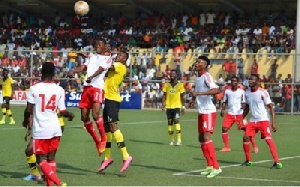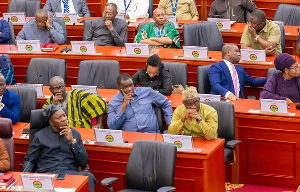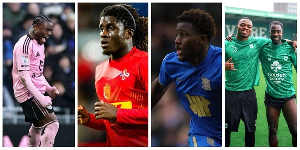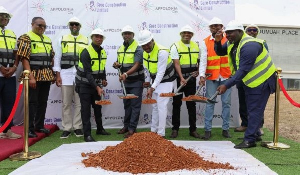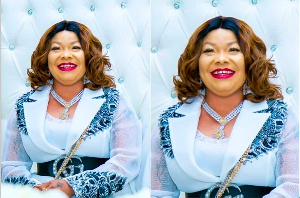It’s been 30 weeks of blood, sweat and tears by 16 competing clubs. 16 clubs who defied the odds to put in some exhilarating performances week in, week out, and fans who savoured the best moments of all 240 matches. There were obviously highs and lows this season. From Bright Adjei, who caught the world’s attention with his amazing goals which did not escape the lenses of global media giant CNN, to the unnecessary banter between the Sports Ministry and the Ghana Football Association over the best English description that best defined the franchise. The Premier League Board will sure have its own standards of measurement as far as the league is concerned, just like you my cherished reader and in the next few paragraphs, I will attempt to put out there my assessment of season 2015/16 Ghana Premier League.
QUALITY OF PLAYERS
The argument will always be made as to whether a certain type or kind of player will always have that desired impact on the league. Growing up as a kid and following the clubs that regularly featured, some of these lads were such massive draws that every fan would give their all to go see on match days. I would end up at the Baba Yara and with that opportunity see Papa Arko, Isaac Boakye, Thomas Boakye, Michael Osei (acting Head Coach of Kotoko), Joe Debrah, Opoku Nti, Kojo Sumaila, Frimpong Manso, Prince Polley and the list goes on.
All competing clubs boasted such equally good players. Though Kotoko and Hearts dominated the league until the emergence of Ashgold in the early ‘90s, there were loads of stars to celebrate. Any honest follower of the franchise would not vouch for the quality exhibited in the last couple of seasons. It has been anything but very ordinary. From Champions Wa All Stars to New Edubiase, it is fair to say that the quality is a bit on the low. Truth, though, is that fans are attracted to match venues by the quality of players who serve as massive draws on match days. I am not too sure if fans of any of the 16 competing clubs have been drawn to the various league centres per the quality of materials in there.
PITCHES
That the Ghanaian player is as good as the quality of pitches that he gets the opportunity to lace his boots on can’t be ignored. I have over the years seen our players at various continental and national assignments demonstrate to the world how good they could be given decent pitches to showcase their talent. Some of the pitches simply do not cut it for the league division. From poor grassing to very bumpy turfs, it greatly influences the quality exhibited and players failing to show their worth. The Premier League Board, under former Chair Welbeck Abra Appiah, attempted to push through such stringent checks as in this space but I am not too sure if they have gone far enough to push the clubs hard enough. The worrying aspect of these pitches is that it has the tendency of not only affecting the quality of play exhibited but also leads to career-threatening injuries, one that the players would gladly do without.
OFFICIATING
Officials in the Ghana Premier League play a significant role in how the league pans out at the end of every season. These guys are mere mortals and can make mistakes in the line of duty just like everyone else. It is sad to say though that the consistency of such poor officiating can simply not be tolerated anymore. Some performances have brought to the fore talk of some club officials colluding with match officials to determine the outcome of games. Talk is rife of match officials being on the payroll of competing clubs. Yet, these same officials can’t seem to find the money to pay their players on a regular basis – sickening and outright folly to say the least. It’s a shame some of these officials have had to face the full rigours of fans who have been displeased by the high level of unprofessionalism in the discharge of their duties. This cannot be justified on any day. What baffles me though is its deep-rooted nature. I happened to chance on a conversation within the football space and was alarmed at how deep-rooted it was. Strangely though, match officials seem to give of their best when the cameras are around. How we could do with a few more live games and highlights of games all weekend. This would go a long way to shame these deviants who are simply not good enough to pass as Class 10 referees.
FUNDING/SPONSORSHIP
This has been and will continue to be a major challenge for clubs in the Ghana Premier League. Barring Kotoko and Hearts who make some decent money at the gates, all the competing clubs earn close to nothing until they come up against the two giants of Ghana football. Clubs are continually funded on the revenue from transfer of players and very limited funds which do come in in the name of sponsorship. For the umpteenth time, there were challenges in securing that blockbuster sponsor following Capital Bank’s decision to pull out. The arguments may still be ongoing over the exact reason behind their decision to pull out but for a brand that has existed since 1958, it is extremely difficult to comprehend why brands don’t seem that interested in associating themselves with the product. SuperSports may have put in some money ($550,000.00 by some estimates) but a lot of these funds would have gone into production work rather than hitting the accounts of the competing clubs. I gather all 16 clubs have only received $10,000.00 so far. Now juxtapose that with rights of the English Premier League which were sold for a staggering £5.136billion and you bet that we are far off. I am not in any way making any comparison as our economies are worlds apart, but the owners of the franchise would surely have to up their game if they are to garner any serious corporate attention. The noise on the airwaves on a daily basis is not enough to pay the bills. When corporates only offer pittance for a product, it only projects the worth of the brand. At this point, only a joke would say the value of the Premier League can court any serious figures. We seem to be very far away in that regard.
HOOLIGANISM/SECURITY
This has been a canker for many years and sadly, it does not look like it is going to be completely eroded anytime soon. I recall the days when certain venues were termed no-go areas by fanatical supporters. Such was the level of intimidation it was practically impossible to go to such venues and return with anything. Now these were the days without social media and cameras all over the place. These new modifications, though, have done little in dealing with this mess. Hardly a week goes by without news or talk of some hooligan acts at our league centres. The PLB have meted out various forms of punishments to clubs that have gone contrary to the law but it sadly does not get any better. The chances of fanatics and individuals associated with the game and the press being there to do their job is a must but it is becoming increasingly difficult to attract new lovers of our game. I simply could not possibly risk the security of my family at some of these venues. I am better off watching these games at home if they are going to be aired or be doing something else. The challenge for the PLB is the difficulty in attracting the current generation who can sit in the comfort of their homes to see the best players on this planet week in week out without the thought of an injury. They have a very difficult task in wooing the current generation of football lovers.
BRAND MANAGEMENT
The Premier League Board will seriously have to crack the whip on all these individuals who purport to speak for them. Their comments do not do the brand any good. Brands that are managed properly stand a very good chance of winning over the hearts and minds of the consuming public and not brands that literally disturb the ears of its potential client base. Communication by the PLB should be structured in such a way that not everyone is allowed to go out and spew their ignorance. A credible brand is the starting point of decent cash flow and that they should pay heed to. I am not too sure if the FA has employed the services of consultants to positively position the brand beyond the hearts and minds of Ghanaians, but it should be one they have to seriously look at if they are to make any headway and enjoy its trickle-down effect.
TECHNICAL EXPERTISE
Players, just like in every space of life, will come and go. The generation of players that I witnessed play in the Ghana Premier League years ago are no more. The big question is whether the technical people at the base are motivated enough to churn out the next generation of talent for the country and beyond. The German model readily comes to my mind. Following their humiliating decline in the late ‘90s and early 2000s after a generation that included Lothar Mattheus, Rudi Völler, Thomas Hässler, Pierre Littbarski, Jurgen Kohler, Andy Müller and co, there was the urgent need to get Die Mannschaft back to the high levels of global football. A programme was developed by the Deutschland Football Association (DFB) which permeated through local communities in the country to develop as much top talent as possible to help the country reclaim its lost glory. The Germans had won three World Cups by 1990 (1954, 1974, 1990), and had lost in consecutive finals in 1982 and 1986. They had also performed tremendously in the Euros where they won in 1972, 1980 and 1996 as well as finishing runners-up in 1976 and 1992. That was how strong they were until their spectacular collapse.
Enter this model and the current generation of players who won the European U-21 Championships in 2009 have gone on to become established world beaters culminating in their winning of the World Cup in 2014 as well as reaching the semi-finals of Euro 2012 and 2016. That 2009 squad included players like Manuel Neuer, Benedikt Howedes, Jerome Boateng, Sami Khedira, Mesut Ozil, Mats Hummels, Marcel Schmelzer, and more. These lads play with some of the biggest clubs in world football today. Now that is progress.
We don’t seem to have a structured model at the base which would see young talent come through and become world beaters. A few have worked hard to get to the top but how consistent is that? It is fair to say that the GFA may not have the necessary funds like the Germans to effectively finance such a model but we can always start from somewhere. Talent alone is not enough. Skills have to be honed and nurtured to get the best out of a player. The GFA, I understand, has consistently supported various individuals and equipped them with coaching skills to help the next generation which should be applauded but it can surely get better.
PROFESSIONALISM
This is one major bane of the Ghana Premier League. From the scheduling of games to the punishments that are meted out to offending parties, a lot clearly needs to be done. As I write this feature, I doubt if there is a tentative date for the commencement of the Ghana Premier League for season 2016/17. I have no idea. How on earth then does that help companies who have long-term plans and programmes and who may want to associate with the brand. A league where fixtures are postponed at very short notice with some excuses that barely wash. A league that almost always faces several litigations at every season’s end. A league where the disciplinary and appeals processes seem to take forever. All these factors say a lot about the level of professionalism attached to the product. We can clearly do more in this area.
There has, of course, been some great stuff to celebrate, like Wa All Stars being the first club from any of the three regions in the north to win the PL trophy and midfielder Latif Blessing being crowned goal king with 17 goals from an attacking midfield position. We had Japanese-American Kenichi Yatsuhashi lighten things up as well, especially the club’s away form and all. Was sad to see him go.
We look forward to more of that in the upcoming season as we still await the start date for next season.
Opinions of Tuesday, 20 September 2016
Columnist: Kwame Dwomoh-Agyemang

